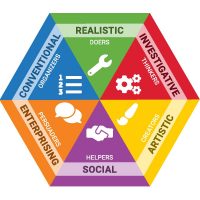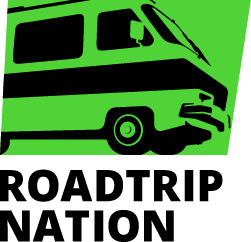#1 Learn About Yourself
The first step in major and career exploration is to spend time reflecting on who you are, what you're interested in, what skills and strengths you possess, your personality type, and what values are important to you. This process is called self-assessment and can take place during individual reflection or with during an appointment with a career counselor. In some cases, a career counselor may refer you to take a career self-assessment instrument or "test" that helps you to identify and narrow down your major and career choices.
✓During career self-assessment you will identify your:
- SKILLS
- INTERESTS
- VALUES
- PERSONALITY TYPE
✓Career self-assesments:
- California Career Zone (create a free account to sign-in and explore):
- Interest Profiler
- Skills Profiler
- Work Importance Profiler
- Roadtrip Nation Roadmap (3-question career quiz)
- Strong Interest Inventory (requires counselor referral)
- Myers-Briggs Type Indicator (requires counselor referral)
#2 Identify Interesting Major/Career Options
After spending time in reflection and self-assessment, your goal is to begin narrowing down and researching career options that you identify as a possible fit. This involves identifying a short list of majors and/or careers you can research research further to learn about the typical tasks and duties, required education and skills, average salary, and future job outlook.
These steps include:
✓Reflect on your interests, skills, and values discovered in step #1 - Learn About Yourself
✓Develop a list of 3-5 possible majors and/or careers
✓Talk to family & friends to share your ideas and get their input about your options
#3 Investigate Options
Once you've developed a list of possible majors and careers to explore, you can now begin to conduct career research to investigage your options.
The following websites are a great place to start your career research process:
✓California Career Zone: Industry Sectors & Occupations List
✓Roadtrip Nation Roadmap & Dashboard
✓Laney College Areas of Interest (AOI's) - List of all majors, degrees and certificates @ Laney
#4 Test The Waters & Get Experience
Once you have narrowed down your list of major and career options, it's time to explore and "test the waters"! Getting hands-on expereince in a certain field or subject is often the best way to see if that major or career will be a good fit.
You can explore your options and gain experience by:
✓Taking a class
✓Volunteering or getting a part-time/seasonal job
✓Get an internship
✓Talking to people in a major or career of interest (These conversations are called Informational Interviews)
#5 Make Decisions
After gaining hands-on experience and testing out your choices of a major or career, it is time to make a prelimary decision. Consider meeting with a career counselor to discuss your experiences, evaluate pros and cons of your options, and help you make a well-rounced decision. Please note that some majors lead to variety of possible career paths (such as Engligh or Psychology), while other majors lead to you a specfic occupation (such as Engineering or Nursing.) It is also important to mention that people often change their careers one or more times throughout their life; so the choice you make now won't necessarily mean you'll have the same job in the future.
Career Decision-Making steps:
✓Evaluate how a major/career fits with your interests, skills & values
✓What are the pros and cons of each option?
✓Select an option and moveforward – declare a major or start job searching
#6 Job/Internship Search & Career Management
Once you're on your way towards success with your new major or career choice, you can begin to develop your job search and career management tools.
Job/Internship Search & Career Management steps:
✓Develop a targeted resume and cover letter
✓Practice your interview skills
✓Create a LinkedIn profile
✓Have career conversations with faculty, professionals and others in your life (this is called networking!)
✓Set professional goals such as acheiveing a certificate, degree, or transfer to a university






